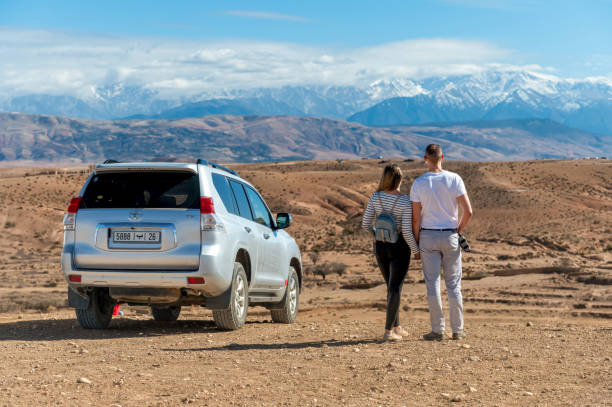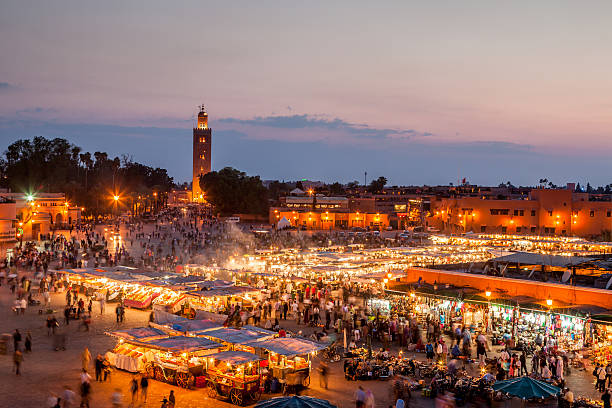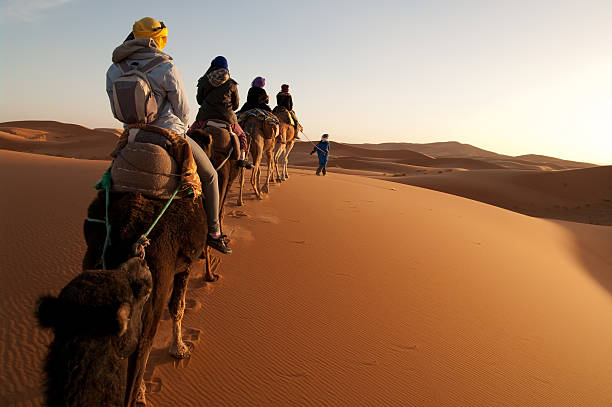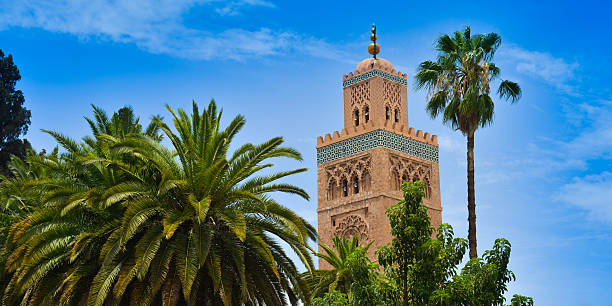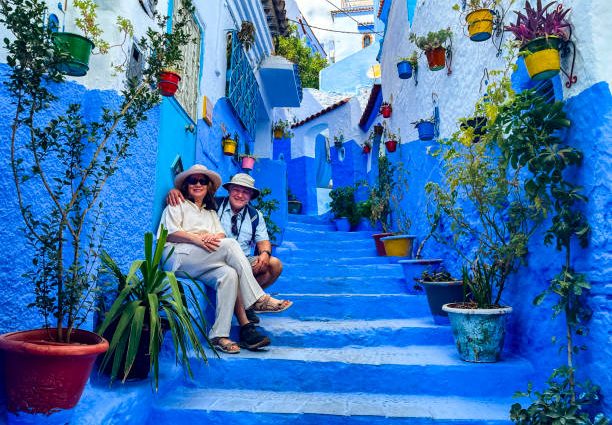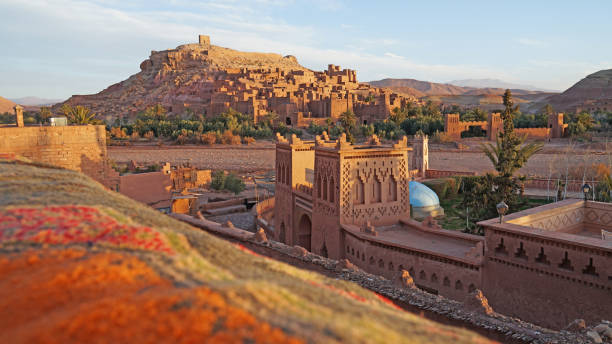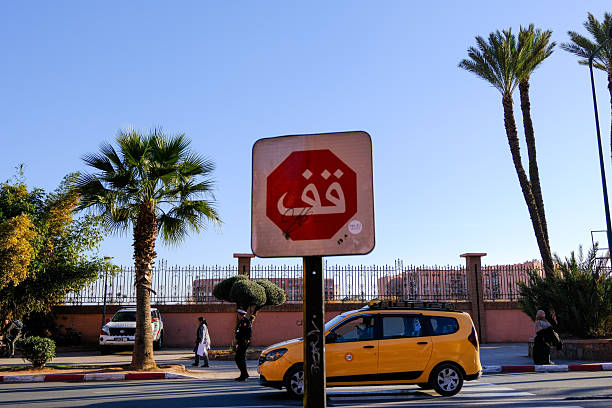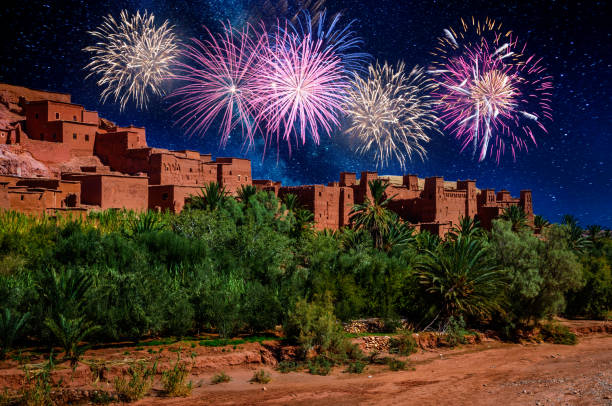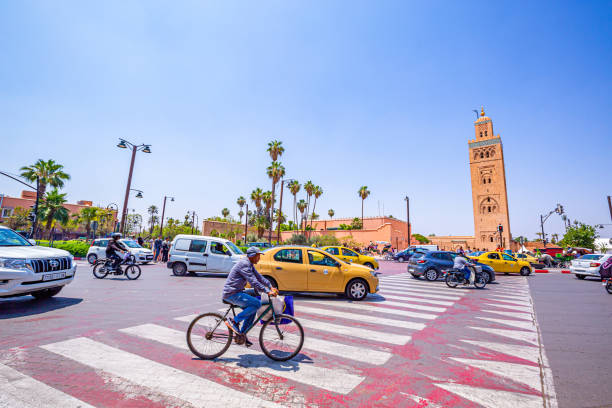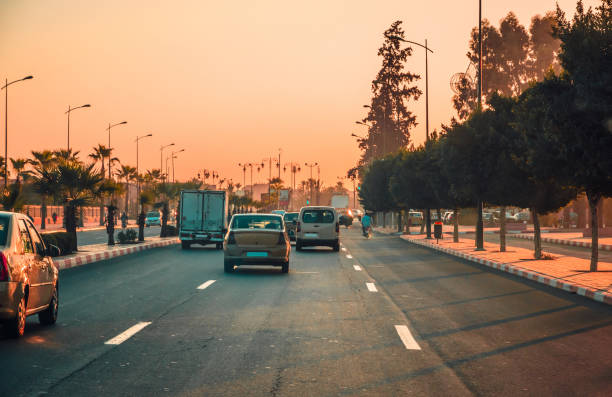“The sweetest language is a smile, but the most powerful connection is a few words in someone’s mother tongue.”
As drivers traversing the diverse landscapes of Morocco, we at Kasbah Transfers have witnessed countless moments when a simple phrase in Arabic or Berber transforms an ordinary interaction into a meaningful cultural exchange. The gleam in a shopkeeper’s eye when greeted in Darija (Moroccan Arabic), the appreciative nod from a Berber elder when thanked in Tamazight, the doors that open—both literal and figurative—when travelers make even modest attempts to speak local languages.
Morocco’s linguistic landscape is as varied as its geography—from the bustling medinas where Darija dominates to mountain villages where Berber dialects have echoed for millennia. While French remains widely spoken in tourist areas and English continues to grow, the heart of Moroccan culture beats in its native tongues.
Drawing from thousands of journeys across the kingdom, our team has compiled this practical guide to the essential phrases that enhance travel experiences and create genuine connections. Rather than an exhaustive language lesson, consider this your road companion—practical expressions selected by those who witness daily which words matter most to travelers.
Understanding Morocco’s Language Landscape
Before diving into phrases, it helps to understand Morocco’s complex linguistic tapestry:
The Languages You’ll Encounter
- Darija (Moroccan Arabic): The everyday language for most Moroccans, Darija differs significantly from Standard Arabic and varies regionally
- Amazigh/Berber: Not one language but three main dialects (Tarifit in the north, Tamazight in the central regions, Tashelhit in the south)
- Modern Standard Arabic: The official language used in government, media, and education
- French: Widely spoken in business, government, and among the educated classes
- Spanish: Common in northern regions due to proximity to Spain
- English: Growing rapidly, especially in tourist areas and among younger Moroccans
Hassan, who drives throughout Morocco, notes: “Visitors are often surprised by how our languages change even within short distances. I might use Darija in Marrakech, switch to Tashelhit when we reach the High Atlas, then incorporate some French in Essaouira—all in a single day’s journey.”
Regional Language Variations
As you travel through Morocco, language preferences shift with the landscape:
- Imperial Cities: Darija dominates, with French commonly used in upscale establishments
- Northern Regions: Spanish influences Darija, with Tarifit Berber in rural areas
- Middle Atlas: Tamazight Berber predominates in villages
- Southern Regions: Tashelhit Berber widely spoken, especially in smaller communities
- Sahara: Hassaniya Arabic influences the local dialect, with Berber also common
Essential Greetings: Your First Connection
Morning to Evening
The time-specific greetings used by Moroccans:
- Sbah l-khir (صباح الخير) – Good morning Pronunciation: sah-BAH l-kheer
- Msa l-khir (مساء الخير) – Good evening/afternoon Pronunciation: mah-SAH l-kheer
Ibrahim, who specializes in city transfers, advises: “Instead of just saying these greetings, wait for the response. Moroccans typically reply with ‘sbah/msa n-noor’ (morning/evening of light). This call-and-response pattern shows you understand the cultural exchange, not just the words.”
All-Purpose Greetings
These versatile expressions work throughout the day:
- As-salamu alaykum (السلام عليكم) – Peace be upon you Pronunciation: ah-sah-LAM-oo ah-LAY-koom Response: Wa alaykum as-salam (And upon you, peace)
- La bas? (لا باس؟) – How are you? (literally “No harm?”) Pronunciation: lah bass Response: La bas, hamdullah (Fine, praise God)
Fatima, our operations coordinator, shares: “‘La bas’ is more than a greeting—it’s an entire conversation. Moroccans often repeat it several times in the same exchange, each with slightly different intonation. It can express genuine concern, casual acknowledgment, or serve as conversation filler.”
Berber Greetings
In Berber communities, these greetings show special cultural respect:
- Azul – Hello (Tamazight and Tashelhit) Pronunciation: ah-ZOOL
- Manzakin – How are you? (Tashelhit, southern regions) Pronunciation: mahn-za-KEEN
Omar, who comes from a Berber family in the High Atlas, notes: “When travelers greet village elders with ‘Azul’ instead of Arabic or French greetings, I immediately notice a change in atmosphere. It’s seen as respectful acknowledgment of Berber identity, which has historically been marginalized.”
Essential Courtesies: Building Relationships
Expressions of Gratitude
Appreciation expressed appropriately opens many doors:
- Shukran (شكرا) – Thank you Pronunciation: shoo-KRAHN
- Baraka llahu fik (بارك الله فيك) – May God bless you (deeper thanks) Pronunciation: bah-RAH-kah la-HOO feek
Youssef, who drives throughout southern Morocco, explains: “‘Shukran’ is fine for simple transactions, but ‘baraka llahu fik’ shows deeper appreciation. I’ve seen many doors open for travelers who use this expression after receiving special help or hospitality.”
Respect and Politeness
These expressions demonstrate cultural awareness:
- Smeh li (سمح لي) – Excuse me/I’m sorry Pronunciation: SMEH-lee
- Mashi mushkil (ماشي مشكل) – No problem Pronunciation: mah-shee moosh-KEEL
- Bslama (بسلامة) – Goodbye/Go in peace Pronunciation: bih-slah-MAH
Berber Courtesies
In Berber communities, these expressions are particularly appreciated:
- Tanemmirt – Thank you (Tamazight) Pronunciation: tan-eh-MEERT
- Ar timlilay – Goodbye/Until we meet again (Tamazight) Pronunciation: ar tim-lee-LYE
Practical Road Expressions: Navigating with Ease
Direction and Location
These phrases help during navigation and exploration:
- Fin…? (فين…؟) – Where is…? Pronunciation: feen
- Bghit nmshi l… (بغيت نمشي ل…) – I want to go to… Pronunciation: buh-GHEET nuh-MSHEE luh
- Qarrib? (قريب؟) – Is it near? Pronunciation: qah-REEB
- B’id? (بعيد؟) – Is it far? Pronunciation: buh-EED
Time References
Understanding time expressions prevents confusion:
- Daba (دابا) – Now Pronunciation: DAH-bah
- Shwiya (شوية) – A little bit/Wait a moment Pronunciation: SHWEE-yah
- Ghudwa (غدوا) – Tomorrow Pronunciation: GHUD-wah
- L-bareh (البارح) – Yesterday Pronunciation: luh-BAH-reh
Mohammed, one of our most experienced drivers, advises: “Understanding ‘shwiya’ is essential for enjoying Morocco. When someone says ‘Wait shwiya,’ it could mean one minute or one hour! This word teaches patience and flexibility—crucial attitudes for appreciating our culture.”
Market and Shopping Phrases: Navigating the Souk
Negotiation Basics
These expressions will help in Morocco’s shopping experiences:
- B’shal? (بشحال؟) – How much? Pronunciation: buh-SHAL
- Ghali bzzaf (غالي بزاف) – It’s too expensive Pronunciation: GHA-lee buh-ZAF
- Khsser shwiya (خصر شوية) – Lower it a little Pronunciation: KHUH-ser SHWEE-yah
- Wakha/Yallah (واخا/يالله) – Okay/Let’s do it Pronunciation: wah-KHA/yah-LAH
Rachid, who often guides visitors through medinas, shares: “Shopping isn’t just commerce in Morocco—it’s conversation, connection, and culture. Using these phrases shows you understand the social nature of our markets. Never rush straight to ‘b’shal’—exchange greetings first, perhaps comment on the craftmanship, then begin the dance of negotiation.”
Appreciation Expressions
These phrases help express interest in craftsmanship:
- Zwiin bzzaf (زوين بزاف) – Very beautiful Pronunciation: z-WEEN buh-ZAF
- Shghul ydeen (شغل يدين) – Handmade/Hand craftsmanship Pronunciation: sh-GHOOL y-DEEN
Dining and Hospitality: Connecting Through Food
Meal Expressions
Food is central to Moroccan hospitality, and these phrases show appreciation:
- Bss’ha (بصحة) – To your health (said before eating) Pronunciation: buh-SAH-ha Response: Allah y’tik s’ha (May God give you health)
- L-hamdulillah (الحمد لله) – Praise God (said after finishing a meal) Pronunciation: luh-ham-doo-LEE-lah
- Mzian (مزيان) – Good/Delicious Pronunciation: m-zee-YAN
Fatima notes: “When invited to a Moroccan home, saying ‘bss’ha’ before eating and ‘l-hamdulillah’ after completing your meal is essential etiquette. These expressions frame the meal as a blessing to be thankful for—a deeply held cultural value.”
Hospitality Responses
When offered Moroccan hospitality, these responses show appreciation:
- Barak llah u-fik (بارك الله أو فيك) – God bless you (response to hospitality) Pronunciation: bah-RAK lah oo-FEEK
- La, shukran, ana shba’an (لا، شكرا، أنا شبعان) – No thank you, I’m full Pronunciation: lah, shook-RAN, ah-nah shuh-BAH-an
Emergency and Assistance Phrases: When They Matter Most
Help and Urgency
In case of emergencies, these expressions can be vital:
- Afak (أفاك) – Please Pronunciation: ah-FAK
- 3aafak (عافاك) – Please (more urgent) Pronunciation: ah-AH-fak
- Musa3ada! (مساعدة!) – Help! Pronunciation: moo-sah-AH-da
Health and Comfort
For expressing physical needs:
- Ana mrid (أنا مريض) – I am sick (male) Pronunciation: ah-nah muh-REED
- Ana mrida (أنا مريضة) – I am sick (female) Pronunciation: ah-nah muh-REE-da
- Bghit lma (بغيت الماء) – I want water Pronunciation: buh-GHEET luh-MA
Regional Language Variations: Adapting Across Morocco
Northern Expressions
Near Tangier and Tetouan, Spanish influences the dialect:
- Fin los servicios? – Where is the bathroom? (Spanish-Arabic mix) Pronunciation: feen los ser-VEE-see-os
- Mezyana – Good (northern pronunciation of “mzian”) Pronunciation: mez-YAH-na
Desert Terminology
In the Sahara regions, these terms prove useful:
- Afous – Hand (Berber, used when giving directions) Pronunciation: ah-FOOS
- Tilila – Water spring (vital knowledge in desert regions) Pronunciation: tee-LEE-la
Omar, our desert specialist, explains: “In the Sahara, language becomes more than communication—it’s survival knowledge. Knowing water-related terms like ’tilila’ connects you to the desert people’s priority: finding and honoring water sources.”
Cultural Language: Beyond Literal Translation
Expressions of Faith
Religious expressions infuse everyday Moroccan conversation:
- Inshallah (إن شاء الله) – God willing/hopefully Pronunciation: in-sha-ALLAH
- Alhamdulillah (الحمد لله) – Praise be to God/Thankfully Pronunciation: al-ham-doo-LI-lah
- Mashallah (ما شاء الله) – What God has willed/Expression of admiration Pronunciation: ma-sha-ALLAH
Rachid advises: “These expressions aren’t just religious statements but communication tools. ‘Inshallah’ when discussing future plans indicates openness to fate’s role. ‘Alhamdulillah’ acknowledges gratitude for current circumstances. ‘Mashallah’ protects against envy when complimenting something beautiful.”
Time and Patience
Expressions that reveal Moroccan attitudes toward time:
- Shwiya b shwiya (شوية ب شوية) – Little by little/Take it easy Pronunciation: SHWEE-ya buh SHWEE-ya
- Nsha Allah (نشاء الله) – We’ll see/It depends (literally “as God wishes”) Pronunciation: nuh-sha-ALLAH
Youssef shares: “Understanding ‘shwiya b shwiya’ helps travelers adjust to our rhythm. It’s not just about patience but appreciating that good things develop naturally, not through rushing. This phrase alone has prevented much frustration among my passengers!”
Pronunciation Tips: Sounding More Natural
Key Sounds in Moroccan Arabic
- The “gh” sound: Produced deeper in the throat than Western languages permit Practice: Try gargling gently while saying “r”
- The emphatic consonants: Darker versions of standard sounds Example: The difference between “s” in “sin” and the deeper “s” in “sun”
- The glottal stop: The catch in your throat when saying “uh-oh” Used in words like “s’ha” (health)
Rhythm and Intonation
- Question intonation: Unlike English, questions often end with a falling tone
- Stress patterns: Usually on the second-to-last syllable
- Speed variations: Certain words are stretched while others are compressed
Mohammed notes: “I’ve noticed travelers communicate most successfully not when their pronunciation is perfect, but when they capture the rhythm and melody of our speech. Moroccan Arabic has a musical quality—try to hear it and mimic the pattern rather than focusing only on individual sounds.”
Language Learning Resources: Continuing Your Journey
For those wishing to expand their Moroccan language skills:
Digital Tools
- Recommended mobile apps specifically for Moroccan Arabic and Berber dialects
- Online resources featuring authentic Moroccan speakers
- Audio guides that capture genuine accents and expressions
In-Country Learning
- Language exchange cafés in major cities
- Short-term classes offered in Fes, Rabat, and Marrakech
- Immersion opportunities through homestays
Learning Through Media
- Moroccan music that clearly pronounces lyrics
- Accessible Moroccan films with subtitles
- Radio programs for ear training
The Deeper Value of Language Effort
In our years of facilitating travel throughout Morocco, we’ve observed something significant: the correlation between language effort and experience depth. Travelers who make even modest attempts to use local languages consistently report more meaningful encounters, greater cultural insights, and more genuine connections.
Ahmed, who has been driving for over 20 years, reflects: “I’ve seen how a single word in Arabic or Berber can completely change an interaction. Suddenly, the traveler is no longer just a tourist but a guest making a genuine effort. This simple act of respect opens doors to experiences that remain closed to those who expect everyone to speak their language.”
The beauty of language effort isn’t about fluency but about intention. The slightly mispronounced greeting, the carefully practiced thank-you, the hesitant question in Darija—these attempts communicate something more important than the words themselves. They say: “I see you. I respect your culture. I am here not just to observe but to connect.”
Practical Application: Your Language Journey on the Road
As you prepare for your Moroccan journey, consider this approach to language learning:
Before You Arrive
- Master 5-7 essential greetings and courtesies
- Practice them aloud until they feel comfortable
- Learn one phrase specific to a region you’ll visit
- Record pronunciation on your phone for review
During Your Journey
- Use your phrases immediately—even with hotel staff and drivers
- Ask for gentle correction from locals
- Add one new phrase each day of your trip
- Note regional variations you encounter
With Your Kasbah Transfers Driver
- Express interest in learning locally relevant expressions
- Practice pronunciation during drives between destinations
- Ask about the context and cultural meaning behind phrases
- Request help with specific interactions you anticipate
Your Kasbah Transfers driver provides not just transportation but a mobile language resource—someone who understands both your needs as a visitor and the nuances of Moroccan expression. This linguistic bridge enhances not only your communication abilities but your entire experience of Morocco.
From Words to Connection: The Road to Authentic Experience
The phrases we’ve shared represent more than vocabulary—they’re keys that unlock authenticity in your Moroccan experience. Each expression offers entry into a culture where relationship precedes transaction, where time expands and contracts according to human need rather than rigid schedule, where gratitude and blessing infuse daily interactions.
The language of the road in Morocco isn’t just about getting from one place to another. It’s about journeying into understanding, appreciation, and genuine connection with a culture that has welcomed travelers for centuries.
As we say in Morocco: “Li ‘allam lisan, zad f l’insan” – “He who learns a language adds to his humanity.” Even a few phrases acquired and respectfully offered can transform your journey from observation to participation, from tourism to genuine travel.
Ready to experience the difference that language connection makes? Contact Kasbah Transfers to begin planning your linguistically enriched journey across our beautiful country. Our drivers look forward to sharing not just Morocco’s extraordinary landscapes, but the expressions that bring them to life.
This blog post is part of our “Cultural Morocco” series, where we explore the deeper dimensions of Moroccan experience beyond typical tourism. For more insights, explore our posts on regional traditions, cultural etiquette, and authentic local experiences across Morocco.

